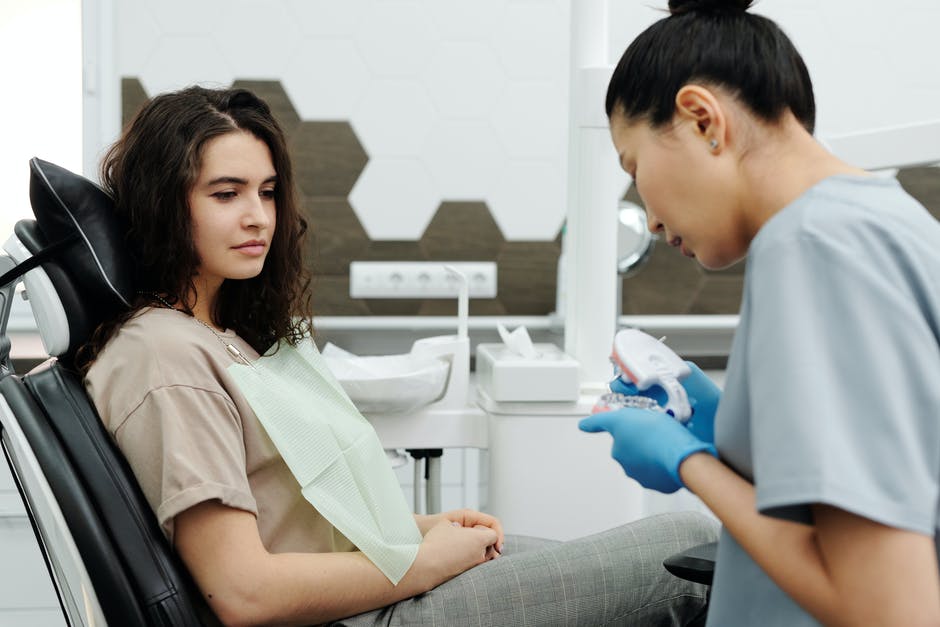The temporomandibular joints (TMJs) are a feat of nature. Effectively two sliding hinges, the TMJs allow the lower jaw to lower and close with ease. Not everyone is fortunate to enjoy optimal jaw function, though.
A misaligned jaw can result in poor teeth alignment (malocclusion), injury, or any number of conditions. The results can range from discomfort to daily pain. If you or a loved one are looking for a way to correct a misaligned jaw, we’ll explore the reasons why correcting a misaligned jaw is essential.
Better Sleep
If the upper and lower jaw cannot properly close at night, you can experience disrupted sleep. Misaligned teeth can contribute to sleep apnea, a serious condition that inhibits breathing at night. Impaired breathing can leave you gasping for breath at night and feeling groggy during the day.
Sleep apnea is linked with dementia. Oxygen deprivation should be a serious concern to anyone who suffers from this breathing impairment. Treatment for a misaligned jaw can improve your quality of sleep and lower your risk of developing sleep apnea.
Address Teeth Grinding (Bruxism)
Poor jaw alignment is often the result of bite misalignment. There is a strong link between malocclusion and bruxism, according to the National Institutes of Health.
Nighttime teeth grinding (bruxism) that results from poor jaw alignment can lead to involuntary jawbone muscle clenching at night. The muscle contractions can place great strain on the TMJs, which can lead to other jaw-related conditions.
Bruxism can lead to enamel wear and chipped teeth. Damage to enamel is not reversible and requires treatments like dental crowns or even tooth extraction.
A mouthguard can prevent permanent damage to your teeth, but the medical device does not address the root cause of bruxism. If you are considering Invisalign or another form of orthodontic treatment to prevent or address bruxism, don’t wait too long to begin treatment.
Efficient Chewing
Poor jaw alignment can make it difficult to bite and chew. The misalignment can make it difficult to apply even pressure when chewing.
Poor jaw alignment can lead you to exert extra pressure on other areas of your jaw as a means of compensating for a bit that is feels “off.” An uneven bite can lead to enamel wear over time. Enamel wear is one leading cause of tooth decay.
The results may result in poorly chewed food that can impede nutritional intake. Improperly chewed food can even be a choking hazard.
To improve your ability to chew effectively, you can correct a misaligned jaw with braces. As your dental alignment improves, your jaws will begin to line up properly.
Improved Facial Symmetry
An underbite or overbite can throw off your facial symmetry. Overbite leaves your lower jaw appearing to recede toward the back of the head while an underbite causes the lower jaw to protrude forward.
To restore beauty and symmetry, you can undergo orthodontic treatment using braces or clear aligners. As teeth are slowly moved into better alignment, your jaw alignment will improve accordingly.
Can braces fix a misaligned jaw? If you have lived with jaw misalignment, orthodontic treatments can deliver drastic cosmetic results.
Improved Speech Function
One of the benefits of braces is the improvement of speech and articulation. Conditions such as underbite and overbite can impede speech.
Proper speech requires a careful balance and alignment between the jaws, teeth, and tongue. Underbite, for example, can move the tongue closer to the upper row of front teeth, which can throw off speech.
Poor jaw alignment can also interfere with whistling sounds, or it can result in a speech impediment called a lisp. Certain letters like “r” and “z” can be difficult to pronounce with misaligned jaws.
Lower Risk of TMJ Disorder
TMJ disorder, also known as TMD, is a degenerative jaw disorder that can make speaking and chewing difficult. TMJ disorder results when the joints do not open and close properly. The condition often results from poor jaw alignment that itself results from poor dental alignment.
Without proper and prompt treatment, TMJ disorder can result in increased discomfort and a wide range of jaw-related problems that can include:
- Difficulty opening the jaws
- Jaw pain in the morning
- Difficulty sleeping
- Worn teeth
- Difficulty biting
- Chronic jaw pain
One of the most effective treatments for TJM disorder is orthodontic treatment. As the teeth are brought into better alignment, the majority of patients experience a cessation of TMD symptoms.
Prevent Need for Jaw Surgery
One of the best benefits of correcting a misaligned jaw is the elimination of the need for jaw surgery to address TMJ disorder. When TMJ disorder is left untreated for years, the cartilage that supports the joints can become worn. At some point, orthodontic treatment will not be an option anymore.
Maxillofacial surgery is a safe but invasive treatment that requires significant recovery time. Jaw surgery can cost several thousand dollars.
One way to prevent the need for surgery is by addressing jaw alignment issues early on before they require surgical intervention.
Begin Treating Your Misaligned Jaw Today
A misaligned jaw can lead to a wide range of health problems and conditions. Most jaw misalignment problems will only worsen with time. Addressing dental alignment problems early on can save you money in the long run.
To help our patients address long-standing jaw alignment issues, we offer a SmileSnap assessment. With just three steps that can be completed online, we will send a cost estimate of your orthodontic treatment.
Don’t let the symptoms of a misaligned jaw keep you from enjoying life. Get started by taking our complimentary exam today.
